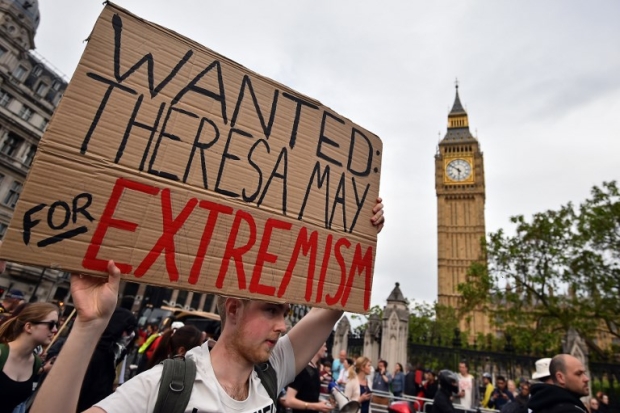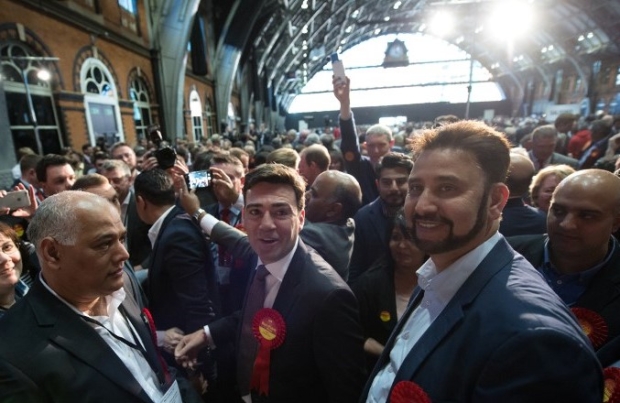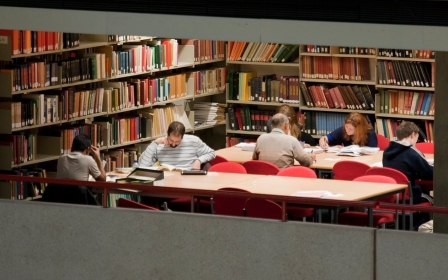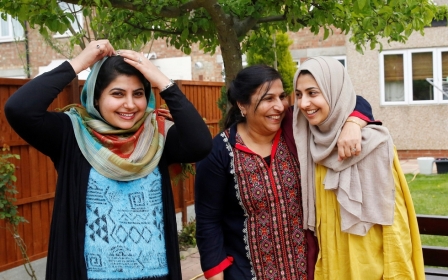British Muslims' fear of Prevent is based on facts not perceptions
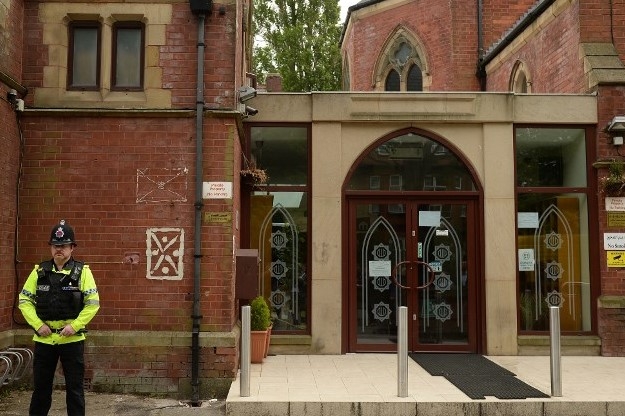
When Andy Burnham, the Labour mayor of Greater Manchester, commissioned a report into Prevent in the wake of the suicide bombing in Manchester in May 2017, we, the co-founders of Advancing Voices of Women against Islamophobia (AVOW), welcomed it.
Burnham had previously criticised Prevent, which is part of the British government's counter-terrorism strategy. We never wanted to see a repeat of the attack on the Manchester Arena, during which 23 people were killed and 139 wounded, more than half of them children.
Despite the suicide bomber Salman Abedi being highlighted to MI5, it was clear Prevent was not working well.
The report, entitled A Shared Future, has just been released. It has found that there is a "genuine fear" that Prevent is targeting Muslims in Greater Manchester. This is uncontroversial. What we object to is the report's elaboration on this, which is that the fear stems from a lack of information. This is wrong and offensive.
Andy Burnham has now changed his tune on Prevent. He says wants to "challenge false perceptions" regarding the scheme.
Actual facts
Muslims from across the UK - the people who are actually affected by Prevent - base their feelings on facts rather than "perceptions".
These facts include statistics published by the Home Office last year, which showed Muslims are disproportionately targeted by the scheme, resulting in 65 percent (4,997 people) of Prevent referrals being for 'Islamist' extremism. By comparison, right-wing extremism makes up 10 percent of referrals (759 people).
In 2018, the latest Prevent statistics showed that 95 percent of referrals were unnecessary and Muslims remained 50 times more likely to be referred. Reports by organisations such as the Open Society Justice Initiative (Eroding Trust), a report by Rights Watch UK and also commentary by United Nations agencies including the Human Rights Council, clearly highlight human rights and discrimination violations by Prevent that have taken place but remain ignored.
Muslims from across the UK - the people who are actually affected by Prevent - base their feelings on facts rather than "perceptions"
This, together with the lack of accountability for mishandled cases and the lack of transparency from the Home Office and its partners, creates the fear experienced by Muslims on a daily basis. The Muslim community’s distrust in the Prevent policy is not based on a "perception" that it is being targeted, but by actual statistics that show that it is.
The language of safeguarding is continually used to shield criticism of Prevent, regardless of whether the attempt of engagement is from an academic or community perspective. However, many in the public sector - including in health and education - have argued that adequate safeguarding practices were already in place prior to Prevent.
Targeted by Prevent
Prevent has encouraged young people, especially Muslim children, to censor themselves from any open participation in the classroom. It has left them avoiding discussing personal beliefs, as they fear becoming a target, something that is highlighted in the work of Arun Kundnani, author of The Muslims are Coming!
This environment of fear and self-censorship has grown and grown, particularly since the Prevent duty became statutory in 2015. This duty means that public sector workers are called upon to spot "signs of radicalisation" in their students, patients or clients.
Prevent has encouraged young people, especially Muslim children, to censor themselves from any open participation in the classroom. It has left them avoiding discussing personal beliefs, as they fear becoming a target
Asking a community to buy in to a strategy that has repeatedly been proven to be counterproductive, reinforces the viewpoint that extremism is a Muslim problem, marginalises the very community it is trying to seek support from, and ironically defeats its own purpose.
It is also important to question the methodology and participation of those involved in this report. Firstly, there appear to be a large number of statutory agencies contributing to the consultation, in comparison to community based organisations. The independence of these organsations as regards Prevent could be questioned.
The online survey response showed just 9 percent of respondents were Muslim and 81 percent were white. Whilst the low engagement is acknowledged by the report, the lack of diverse responses, especially engagement by those who are most greatly impacted by the policy, is crucial.
From conversations with Muslims, many refuse to respond to such surveys because they feel their responses may be seen as opposing Prevent and therefore have troubling repercussions. Either that, or they no longer trust that any review of Prevent will bring about any change.
Lack of Muslim engagement
In terms of written responses, the Commission received three from individuals and four representing organisational perspectives. In hindsight, one must ask whether the findings of this report are therefore inevitable given the lack of diverse engagement. Can we safely assume that the lack of Muslim engagement is therefore indicative of a complacent, uncritical approach to Prevent?
The report suggests that the main issue with Prevent is one of communication. The idea, also put forward by the Home Office, is that perception, a lack of information and "mythical" cases bandied about by the "anti-Prevent lobby" are the real issue.
However, the hate crime statistics in this report suggest a wider problem affecting "suspect communities", where Muslims are hit the worst. This is cause for significant concern.
The report's online survey responses asked whether people have witnessed somebody else having something hateful said or done to them based on their race: occasionally (34 percent) and frequently (16 percent); religion: occasionally (29 percent), frequently (14 percent). These figures are in fact higher than all other categories (disability, gender, sexuality etc), which suggests that in a time of rampant Islamophobia, Muslims being portrayed as a "suspect community" is having serious consequences.
While we welcome the report mentioning foreign policy as an important factor, the report does not indicate how the government or Prevent should deal with mitigating this factor
The report should also acknowledge the relevance and impact of family relationships when discussing Prevent. According to the report, 65 percent of respondents are influenced by a partner, 53 percent are influenced the most by their mothers and 41 percent by their fathers.
Within the Prevent climate, we see mothers telling their children not to speak openly in school because of the fear that a young child may say something misconstrued by teachers and referred to Prevent, so the importance of families in this context is clear.
If parents cannot speak openly or inspire the confidence within their children to express themselves in school or on university campus, how can we talk about the need for "difficult conversations" in such a fearful climate?
The foreign policy factor
It is, though, good to see some mention of Western foreign policy. "Terrorism emanates from a heterogeneous population of Muslims and notable political grievances towards Western foreign policy, which plays a prominent role as a risk factor for radicalisation", the report says.
Aside from foreign policy, crucial research on the risk of radicalisation highlights socio-economic inequalities and - in the case of the Muslim community - marginalisation as a suspect community.
In order to move forward we need to redirect funding towards issues such as socio-economic inequality and lack of resources for young people that have been highlighted by the report, negatively impacting on social cohesion across Greater Manchester and making some feel vulnerable and like they do not belong. We do not need Prevent for this.
A cohesive society
If there is a genuine effort to build trust and cohesion in Greater Manchester, then we need to ask the right questions of what makes a society more cohesive and equal. Businesses play a key role in social cohesion and the economic growth seen across the city in recent years provides an ideal opportunity for businesses to work with other agencies to address inequalities in the workplace.
"The Greater Manchester Combined Authority should lobby the Government to mandate all employers to publish employer demographic data, including the number of Black, Asian and Minority Ethnic (BAME) employees as well as the number of BAME and female employees in senior management roles. This is in addition to the gender pay gap requirement."
It is imperative to work towards making workplaces more inclusive, especially tackling discrimination against Muslim women in the labour market.
In 2016, a report by the parliamentary Women and Equalities Committee found that Muslim women are the most disadvantaged when it comes to the UK employment sector. Many Muslim women in Britain face a "triple penalty" impacting on their job prospects - being women, being from an ethnic minority and being Muslim.
In essence, asking Muslims to "have difficult conversations", "report people", adopt the "safeguarding" vocabulary of Prevent and labelling Muslims who criticise Prevent as "self-appointed leaders", isn’t the solution. It is disconcerting to see Andy Burnham, who never minced his words on Prevent as shadow home secretary, so significantly modify his stance on such a toxic policy issue.
We all want to feel safe, so it's important to establish whether strategies such as Prevent are needed for this.
The hope for this review was that devolved powers could be used to ask for an independent review into Prevent in the north-west region. Andy Burnham has taken the government to task over other issues such as railways and the Northern Powerhouse. He could have done the same with Prevent.
- Siema Iqbal is a doctor and British Muslim opinion writer based in Manchester.
- Heena Khaled works in International Human Rights and is based in London.
- Amanda Morris has a background in education and linguistics, and has volunteered for various community organisations. She lives in Cardiff.
- Farah Anwar-Bawany is a Community Relations Officer for National Zakat Foundation and is based in Manchester.
The views expressed in this article belong to the authors and do not necessarily reflect the editorial policy of Middle East Eye.
Photo: Police officers stand on duty outside a Didsbury Mosque in Didsbury, Manchester, northwest England, on 24 May, 2017(AFP)
Middle East Eye propose une couverture et une analyse indépendantes et incomparables du Moyen-Orient, de l’Afrique du Nord et d’autres régions du monde. Pour en savoir plus sur la reprise de ce contenu et les frais qui s’appliquent, veuillez remplir ce formulaire [en anglais]. Pour en savoir plus sur MEE, cliquez ici [en anglais].


